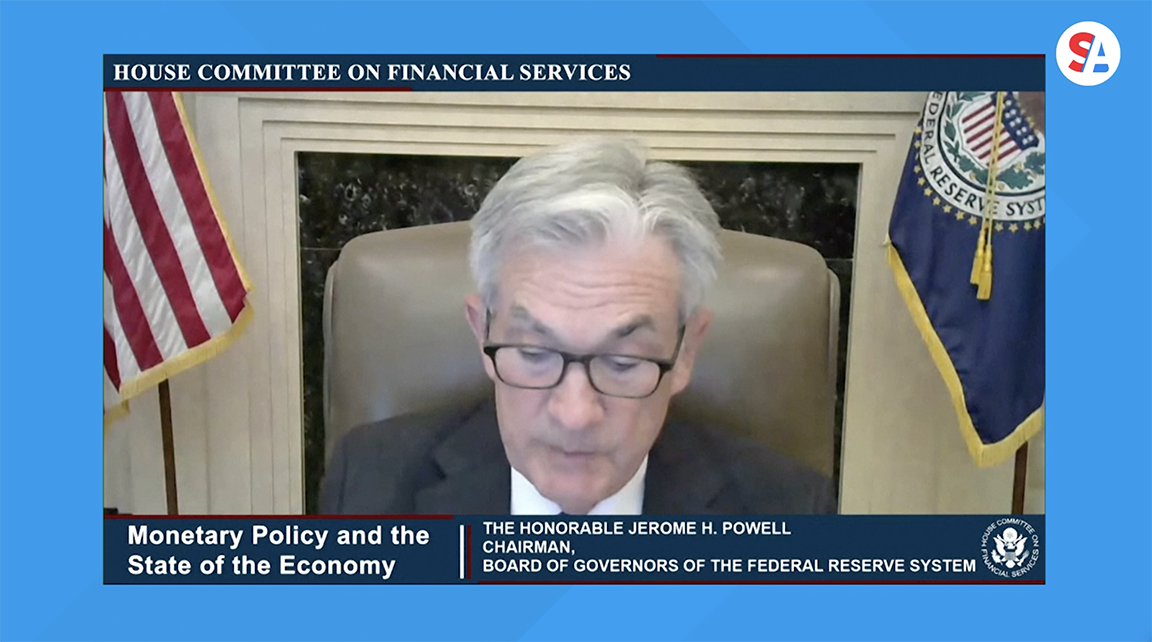
Federal Reserve Chairman holds tight on interest rate, says inflation will last through the summer
Jerome Powell, Chair, Federal Reserve: “Over the first half of 2021 ongoing vaccinations have led to a reopening of the economy and strong economic growth, supported by accommodative monetary and fiscal policy. Real gross domestic product this year appears to be on track to post its fastest increase in decades. Household spending is rising at an especially rapid pace, boosted by strong fiscal support, accommodative financial conditions and the reopening of the economy. Inflation has increased notably and will likely remain elevated in coming months before moderating. Inflation is being temporarily boosted by base effects as the sharp pandemic related price increases from last spring drop out of the 12 month calculation. In addition, strong demand in sectors where production bottlenecks or other supply constraints have limited production has led to especially rapid price increases for some goods and services, which should partially reverse as the effects of the bottlenecks unwind. Prices for services that were hard hit by the pandemic have also jumped in recent months as demand for these services has surged with the reopening of the economy. To avoid sustained periods of unusually low or high inflation, the FOMC (Federal Open Market Committee) monetary policy framework seeks longer term inflation, inflation expectations that are well-anchored at two percent, the committee’s longer run inflation objective. Measures of longer term inflation expectations have moved up from their pandemic lows and are in a range that is broadly consistent with the FOMC’s longer run inflation goal. Turning to monetary policy at our June meeting, the FOMC kept the federal funds rate near zero and maintained the pace of our asset purchases. These measures, along with our strong guidance on interest rates and on our balance sheet, will ensure that monetary policy will continue to deliver powerful support to the economy until the recovery is complete. We continue to expect that it will be appropriate to maintain the current target range for the federal funds rate until labor market conditions have reached levels consistent with the committee’s assessment of maximum employment and inflation has risen to two percent, and is on track to moderately exceed two percent for some time. As the committee reiterated in our June policy statement, with inflation having run persistently below two percent, we will aim to achieve inflation moderately above two percent for some time so that inflation averages two percent over time and longer term inflation expectations remain well anchored at two percent. As always, in assessing the appropriate stance of policy, we will continue to monitor the implications of incoming information for the economic outlook and would be prepared to adjust the stance of monetary policy as appropriate if we saw signs that the path of inflation or longer term inflation expectations were moving materially and persistently beyond levels consistent with our goal. Conditions in the labor market have continued to improve, but there is still a long way to go. Labor demand appears to be very strong. Job openings are at a record high. Hiring is robust. And many workers are leaving their current jobs to search for better ones. Indeed, employers added 1.7 million workers from April through June.”










